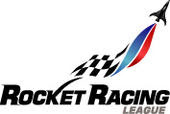 The Rocket Racing League, which wants to host NASCAR-style races in the skies above Spaceport America and around the world, has lost one of the four teams that had signed on to participate.
The Rocket Racing League, which wants to host NASCAR-style races in the skies above Spaceport America and around the world, has lost one of the four teams that had signed on to participate.
The Las Cruces Sun-News is reporting today that Leading Edge Rocket Racing, which was the league’s first announced team, has severed ties with the league. That leaves two independent teams and one team owned by the league.
The former team’s Monday announcement is the latest setback for the racing league, which hasn’t drawn interest from potential team owners as quickly as officials hoped or originally told the public they planned.
Leading Edge’s chief executive officer, Robert “Bobaloo” Rickard, told the Sun-News that his group’s “vision, business practices and communication standards are incompatible with those of the league.”
League Chief Operating Officer Tim Gormley said the former team didn’t meet the league’s requirements and backed out, but said the news had no impact on the league’s plans.
“As it stands now, there’s no impact on the league,” he told the Sun-News. “It was one of the teams that did not meet our requirements.”
Regardless of what Gormley says, things haven’t gone as planned. The league originally wanted to hold an exhibition race during the October 2006 X Prize Cup, but it never materialized. And, several months ago, a shortage of cash meant the league had to delay paying a small group of employees for a time, but a later influx meant they got their money.
Gormley told the Sun-News the league now plans “exhibition racing by the end of this year and full racing by 2008.”
The news, though not good, isn’t a critical blow to the league. Any fledgling industry has difficulties getting off the ground. Some commercial space companies that come to
The recently successful launch of an UP Aerospace rocket into space carrying the ashes of more than 200 people proved a business model that works. People are willing to pay hundreds of dollars to fly the ashes of their loved ones into space.
It’s also proof that commercial space companies can overcome setbacks. Before last month’s successful launch, and UP Aerospace rocket failed to reach space in September because of a design flaw.
The racing league could figure out how to make its plan work and host races in the sky, with people paying to watch rockets fly around virtual tracks at 320 miles per hour. The league has already purchased the land to build its headquarters near the
But the league is likely going to need to show some progress before a number of other teams will sign on to the pricey venture. Start-up costs for a team are more than $1 million, and estimated annual costs are about $500,000.